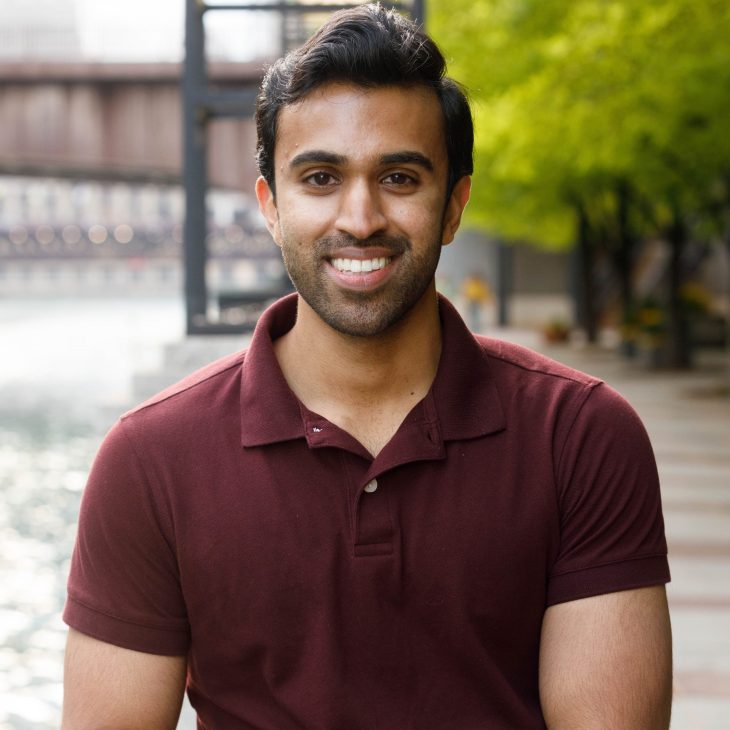Health professionals embark on the noble endeavor of caring for their communities and patients, driven by diverse motivations.
For a subset of these professionals, particularly interfaith leaders, choosing a career in health is not simply a job – it becomes a profoundly personal commitment aligned with their unique worldviews and spiritual perspectives.
Here are four stories of interfaith leaders working within the medical and public health sectors. These dedicated professionals are passionate about enhancing community health and well-being and are propelled by the guiding principles of their worldviews.
Iqra Iftikhar, Regulatory Officer, Food and Drug Administration
After experiencing rejection in the medical school application process, Iqra saw it as a redirection and ventured into a career in public health, gaining valuable experiences in pharmacy and research. As she immersed herself in public health, the focus on community health became a source of fulfillment, eventually leading to an opportunity with the Food and Drug Administration as an investigator, ensuring Americans have access to healthy, safe, and nutritious food.
Growing up as a Muslim in Pakistan, Iqra’s faith instilled a deep commitment to caring for others during illness. Whether she delivered fruit baskets or offered her faith-driven dedication to improving community well-being provided her with spiritual and emotional fulfillment.
Iqra recognizes the importance of understanding various religious and faith traditions to be an effective public health leader. She firmly believes that “sickness [and] calamity do not discriminate,” and everyone should have the opportunity to live a healthy life. This belief system propelled her to utilize an interfaith approach within her public health practice.
Jackie Kasinskas, Master of Public Health Student, Boston University School of Public Health
Guided by a deep-rooted commitment to community service and influenced by familial and faith-based values, Jackie embarked on a journey to address social, economic, and health inequities. Pursuing a Master of Public Health and a Master of Social Work, her studies and experiences highlighted the complexity of societal challenges and the need for diverse approaches to create meaningful change.
From supporting cancer patients to exploring diverse spiritual practices, Jackie’s evolving worldview underscores the importance of service, solidarity, and collective care. Inspired by her grandfather’s wisdom – “Keep the faith” – she finds hope in working toward a healthier tomorrow for all.
Recognizing religion and faith as a social determinant of health, Jackie emphasizes the significance of understanding patients’ beliefs in healthcare. She aspires to bridge gaps in the public health sector through interfaith listening, cooperation, and support, fostering healthier communities where all individuals can thrive.
Pallavi Tatapudy, Child and Adolescent Psychiatry Fellow, Stony Brook Medicine
During medical school, it became evident to Pallavi that psychiatry was not a choice but a calling. Drawing parallels to the natural fit between the revered figures in Hindu mythology, Lord Hanuman and Lord Rama, she found inspiration in the field’s emphasis on effective communication, mutual respect, and unconditional positive regard.
As a lifelong student of Vedanta, a philosophical and spiritual tradition within Hinduism, Pallavi’s journey was shaped by teachings from Vivekananda Vidyapith in Wayne, New Jersey. The institution instilled the essence of scriptures, Hindu philosophy, and culture. The pillars of prayer, service, and respect became integral to her profession.
“Psychiatry and my involvement in diversity, equity, inclusion, access, belonging, and justice are ways I express myself,” Tatapudy shares. Inspired by the intersection of interfaith work and health, she continues to explore creative expressions like poetry and dance to understand and process patient experiences. Her interfaith journey is not just a professional path but a vocation to foster unity and inspire others.
Kendall Burton, Ambulatory Social Work Care Manager for Pediatric Sub-Specialty Clinics, Rush University Medical Center
Growing up volunteering at the local children’s hospital, Burton discovered a passion for healthcare coupled with a desire for advocacy and real-world problem-solving.
Pursuing a dual master’s degree in social work and public health, her initial focus on behavioral health shifted to a fulfilling role as a medical social worker amid the challenges of the pandemic.
Influenced by stories of her grandfather’s dedication as a Pentecostal Church preacher and superintendent and her early exposure to healthcare, Burton developed a sense of joy and satisfaction in helping others. Trained as a social worker, she embraced the opportunity to positively impact individuals and communities, seeing her role as more than just a job.
Burton recognizes the importance of responding to societal issues using an interfaith approach. She aims to connect with and advocate for patients, holding spaces for conversations about faith and spirituality in the medical setting.
“It often feels that faith does not have a role in the medical setting, but with my current role, I’m able to explain to teams how caring for the whole person is integral to providing quality care,” Burton shares.
Iqra, Jackie, Pallavi, and Kendall are compelling examples of numerous health professionals who transform their diverse worldviews into tangible actions that shape community care. Their profound personal callings motivate them beyond conventional health sector boundaries.
Navigating the intricate landscape of public health, it is clear that acknowledging and embracing diverse worldviews within the field enriches individual experiences and collectively strengthens our capacity to cultivate compassionate and inclusive community care.

Suraj Arshanapally
Suraj Arshanapally, MPH, is an Indian American peacebuilder, public health advocate, and storyteller. He started The Multicultural Man to amplify culturally diverse stories of masculinity that promote health and peace. He is also the Managing Editor for the CDC Yellow Book, an international travel medicine publication at the Centers for Disease Control and Prevention. Suraj received his MPH in Social and Behavioral Sciences from Yale University. He believes multiculturalism and interfaith cooperation are crucial to building a healthy and peaceful society.
Suraj Arshanapally wrote this article in his personal capacity. The opinions expressed in this article are the author’s own and do not reflect the view of the Centers for Disease Control and Prevention, the Department of Health and Human Services, Interfaith America, or the United States government.




